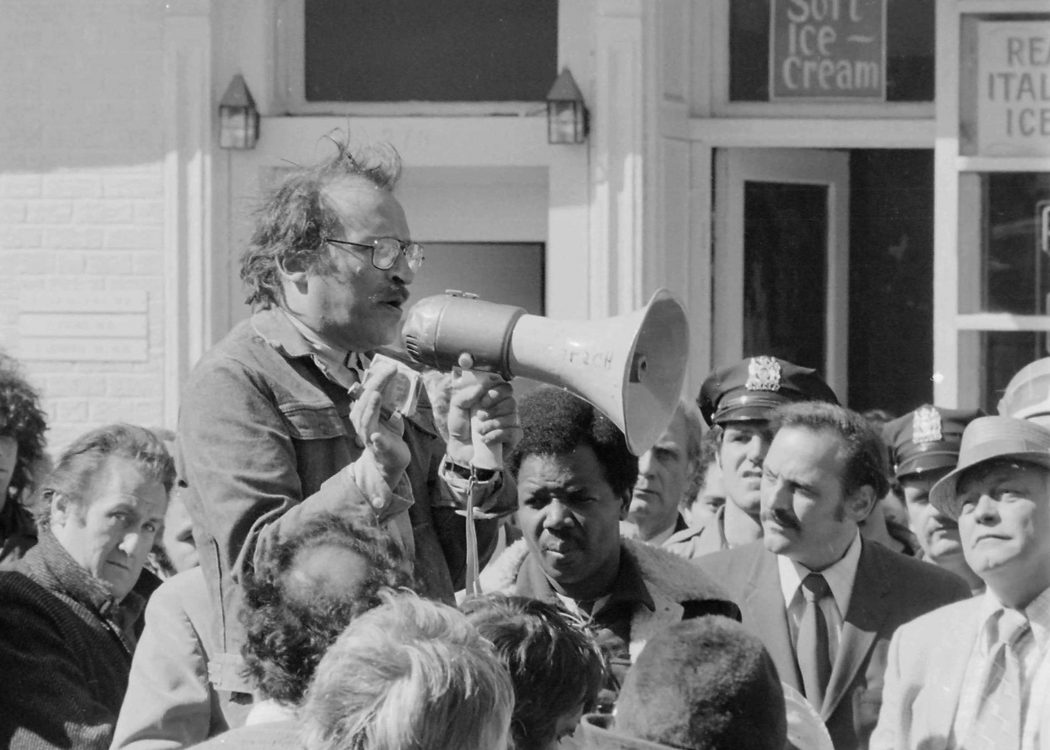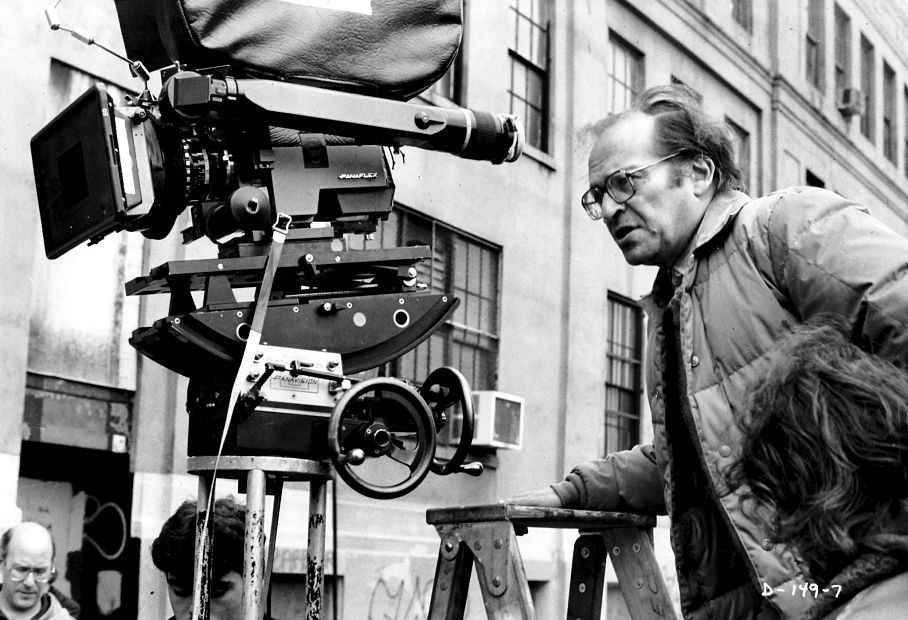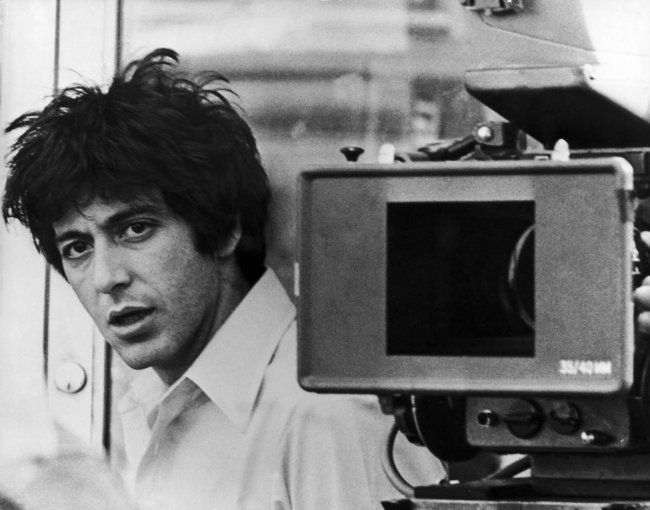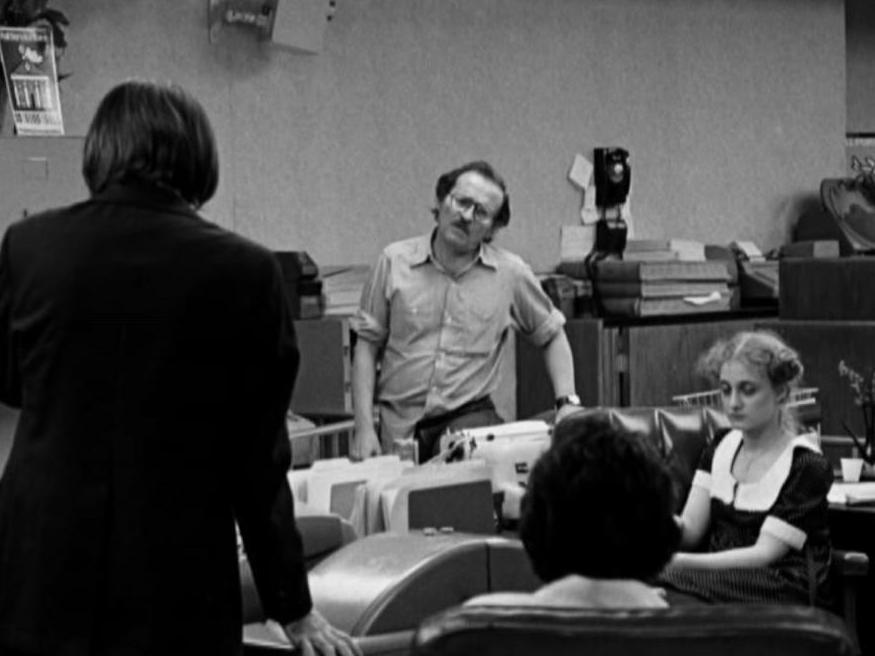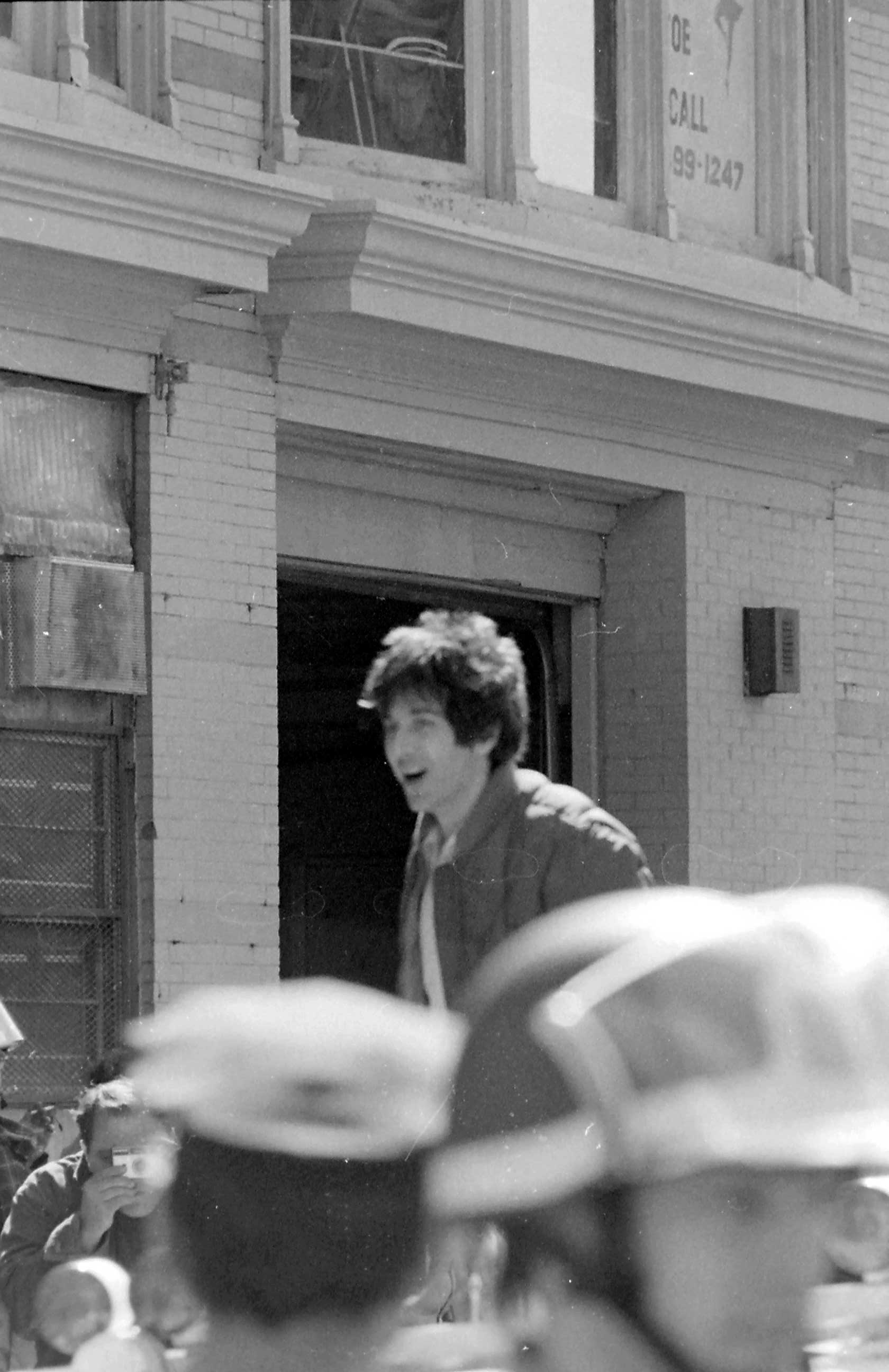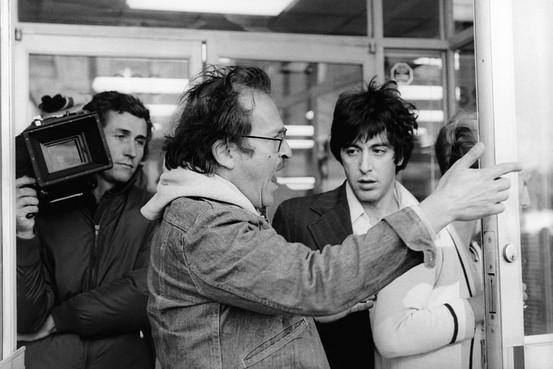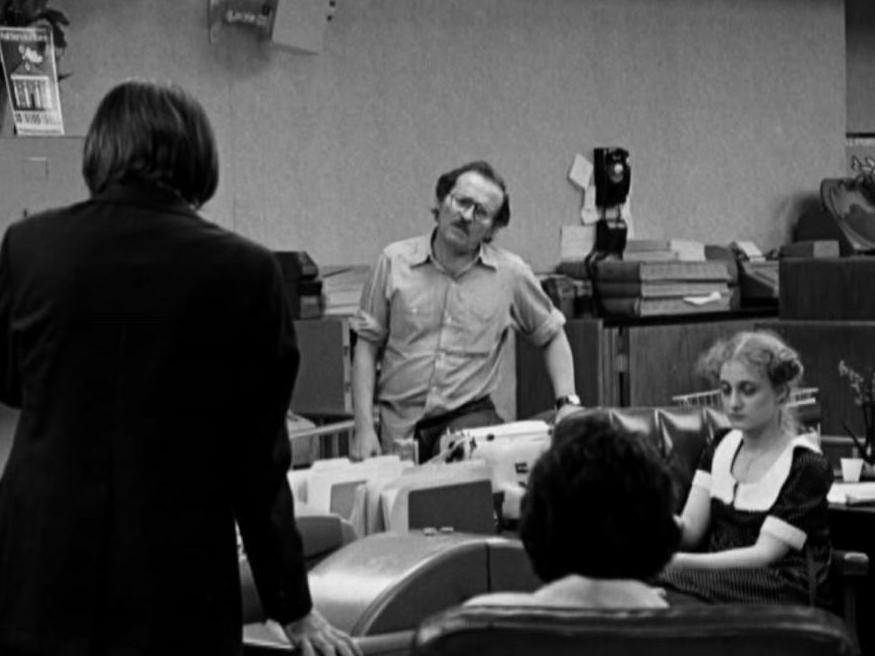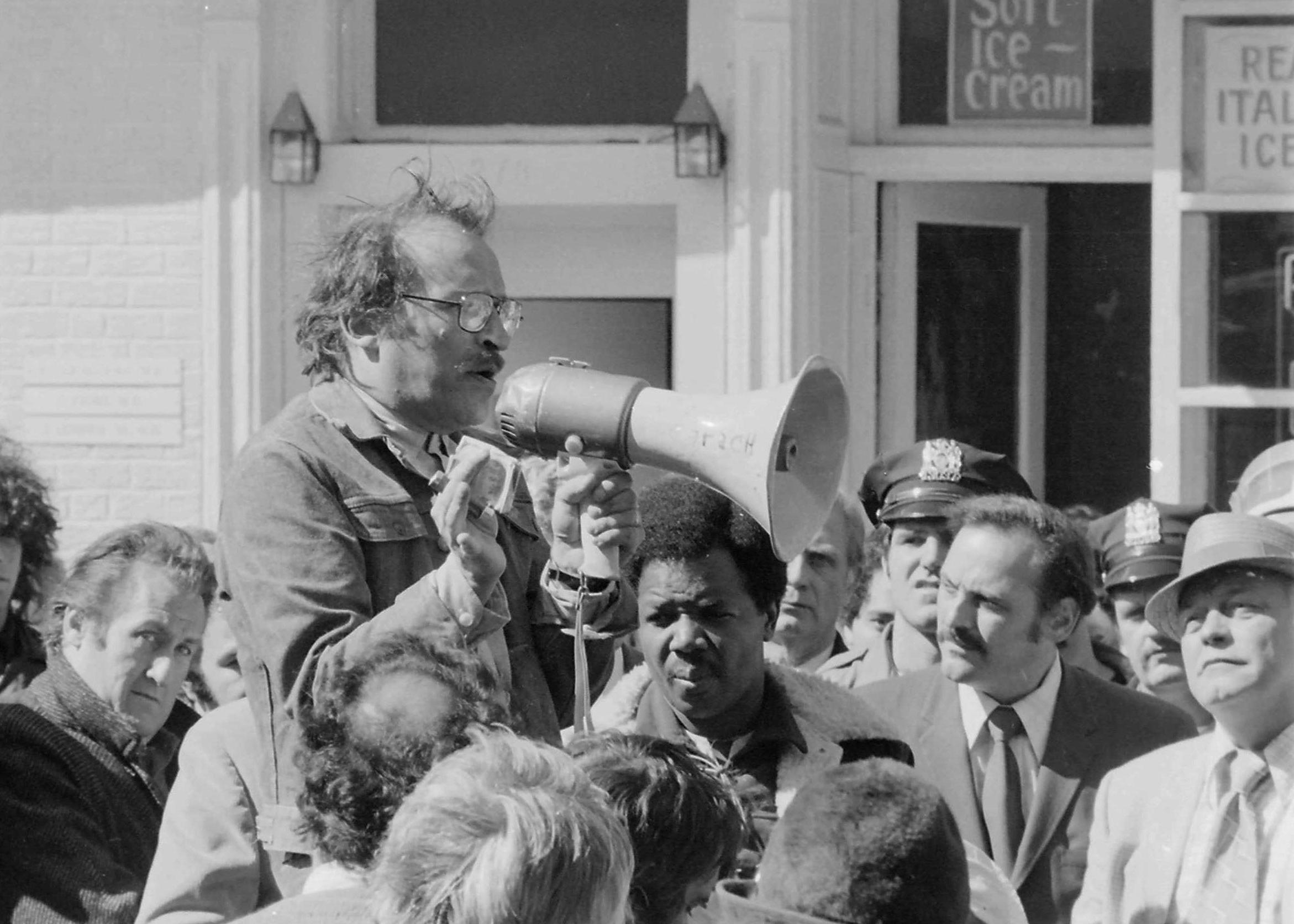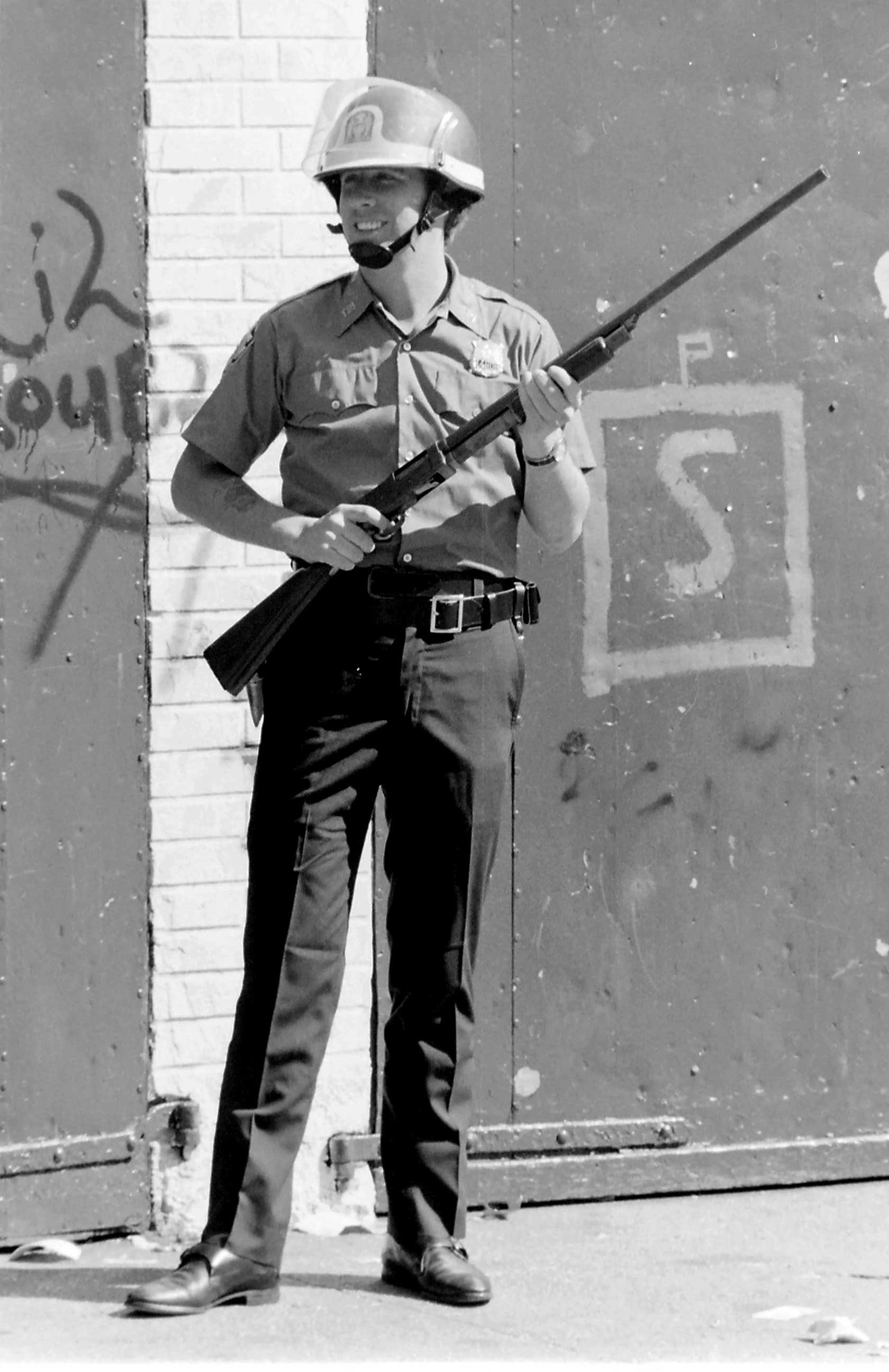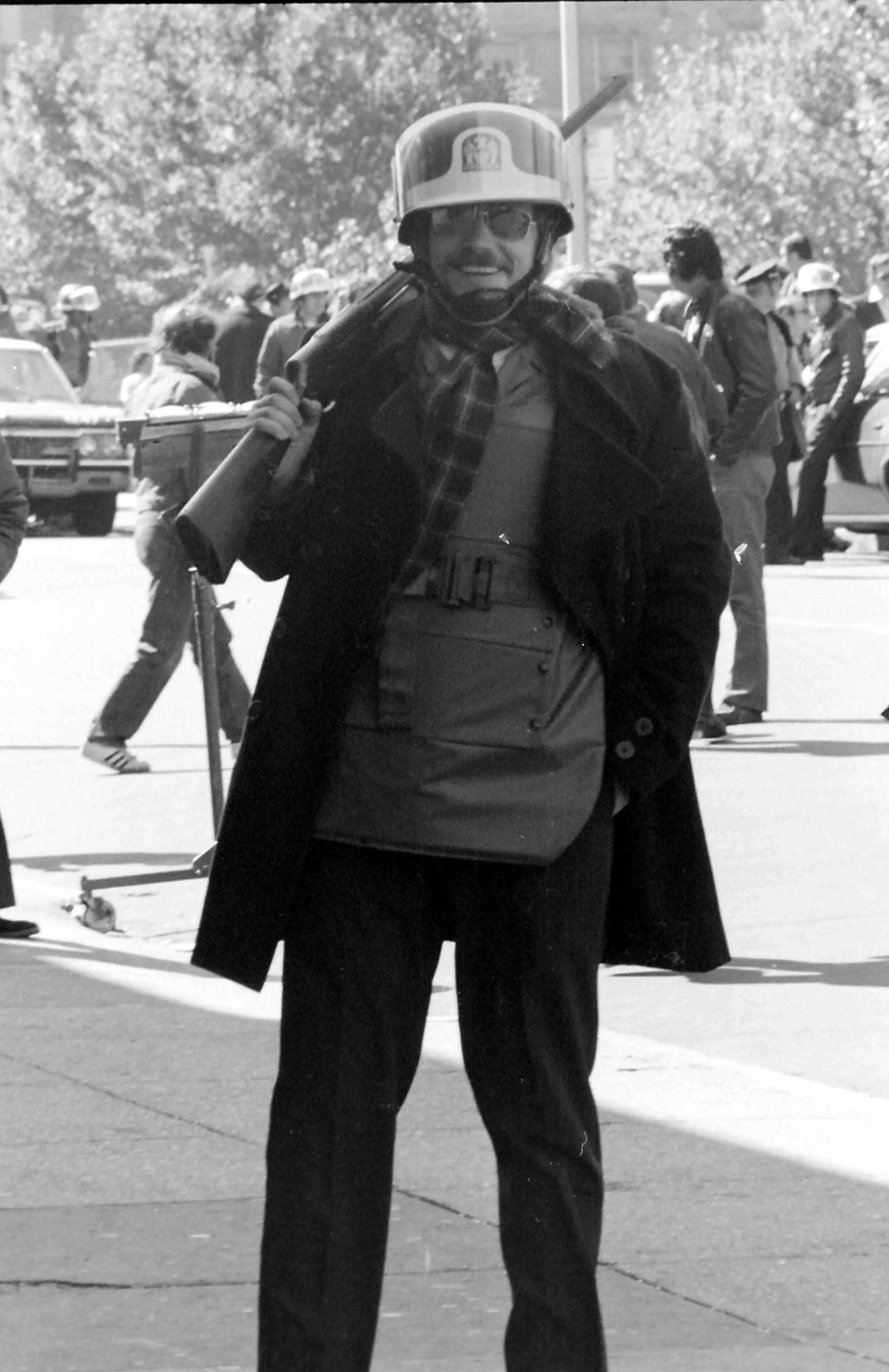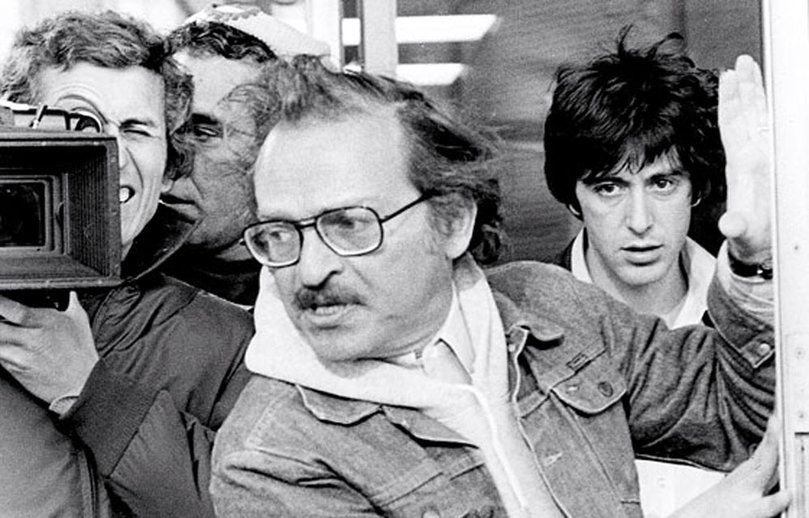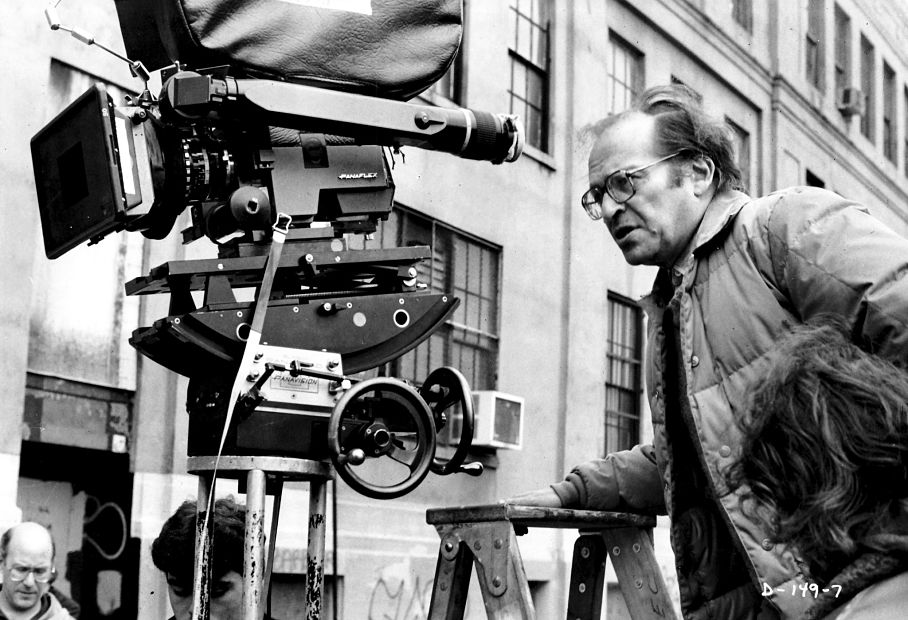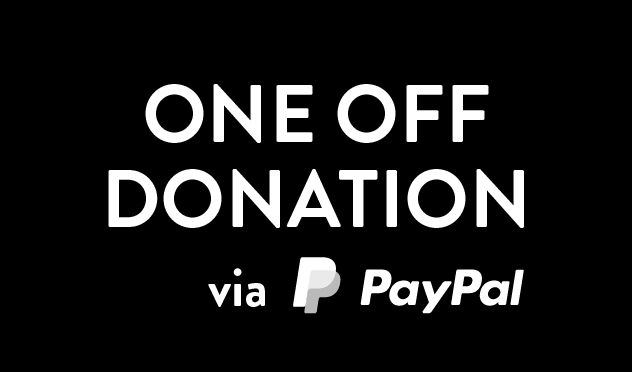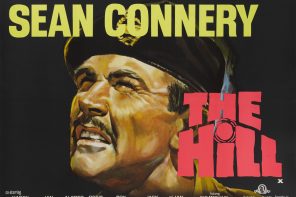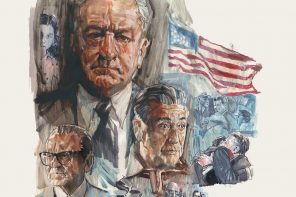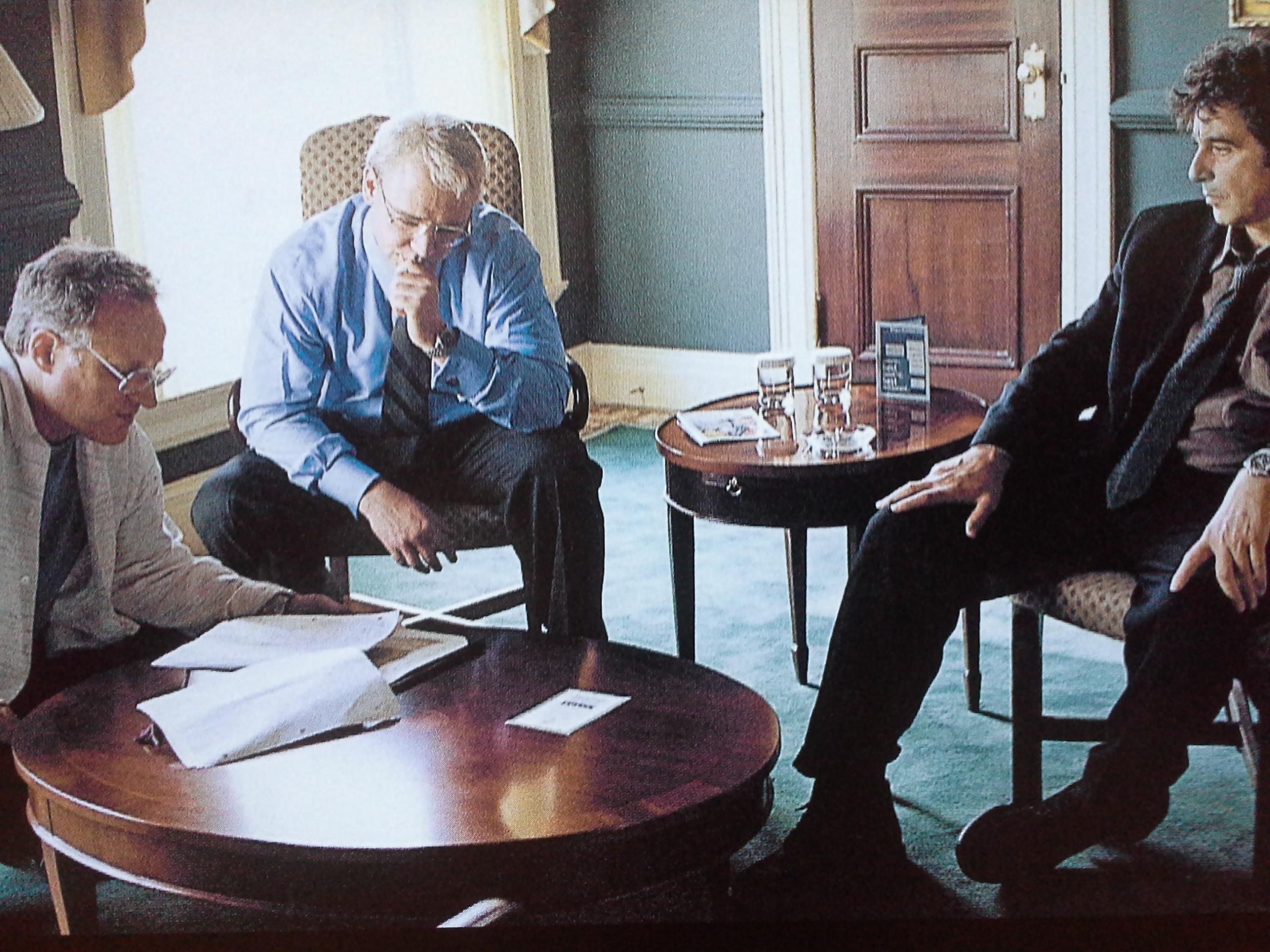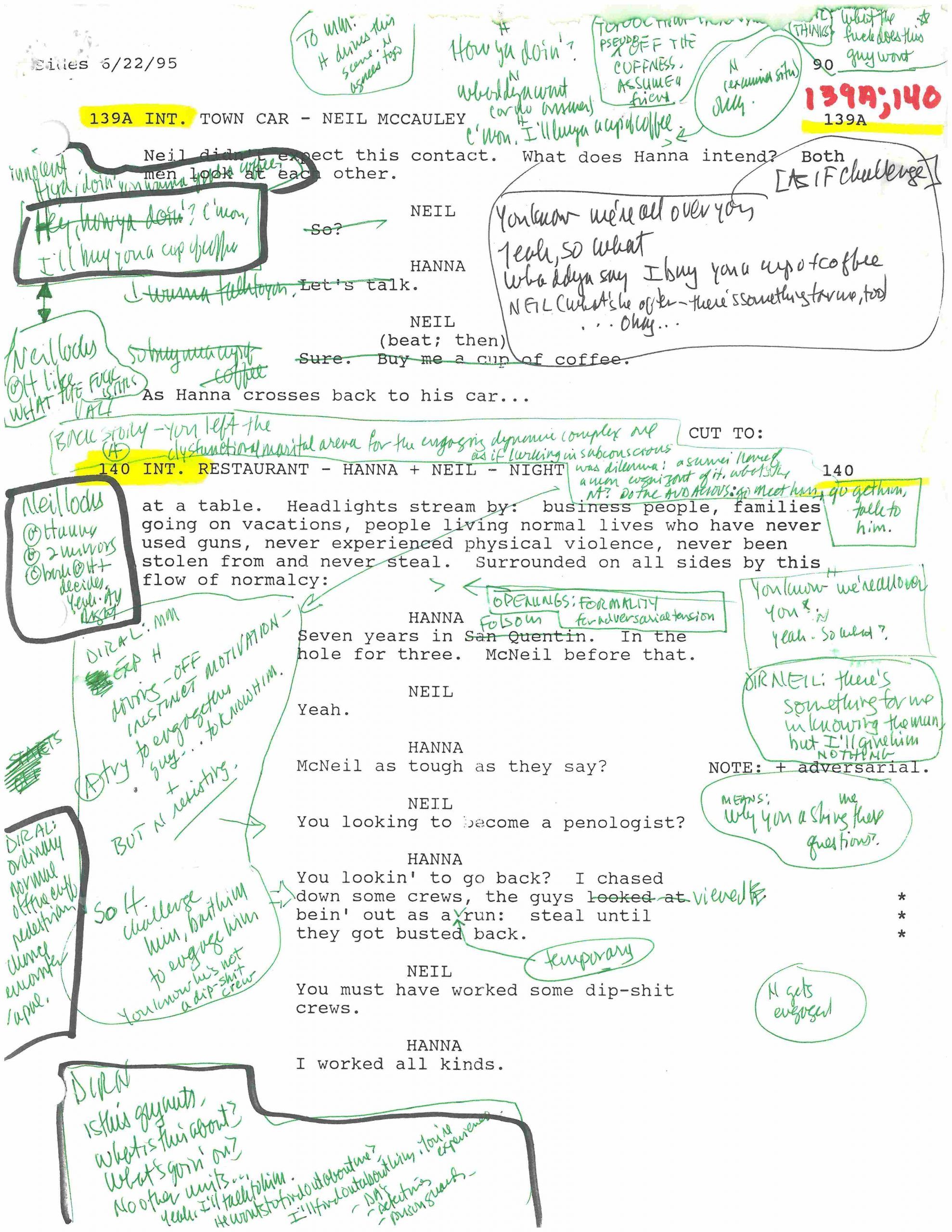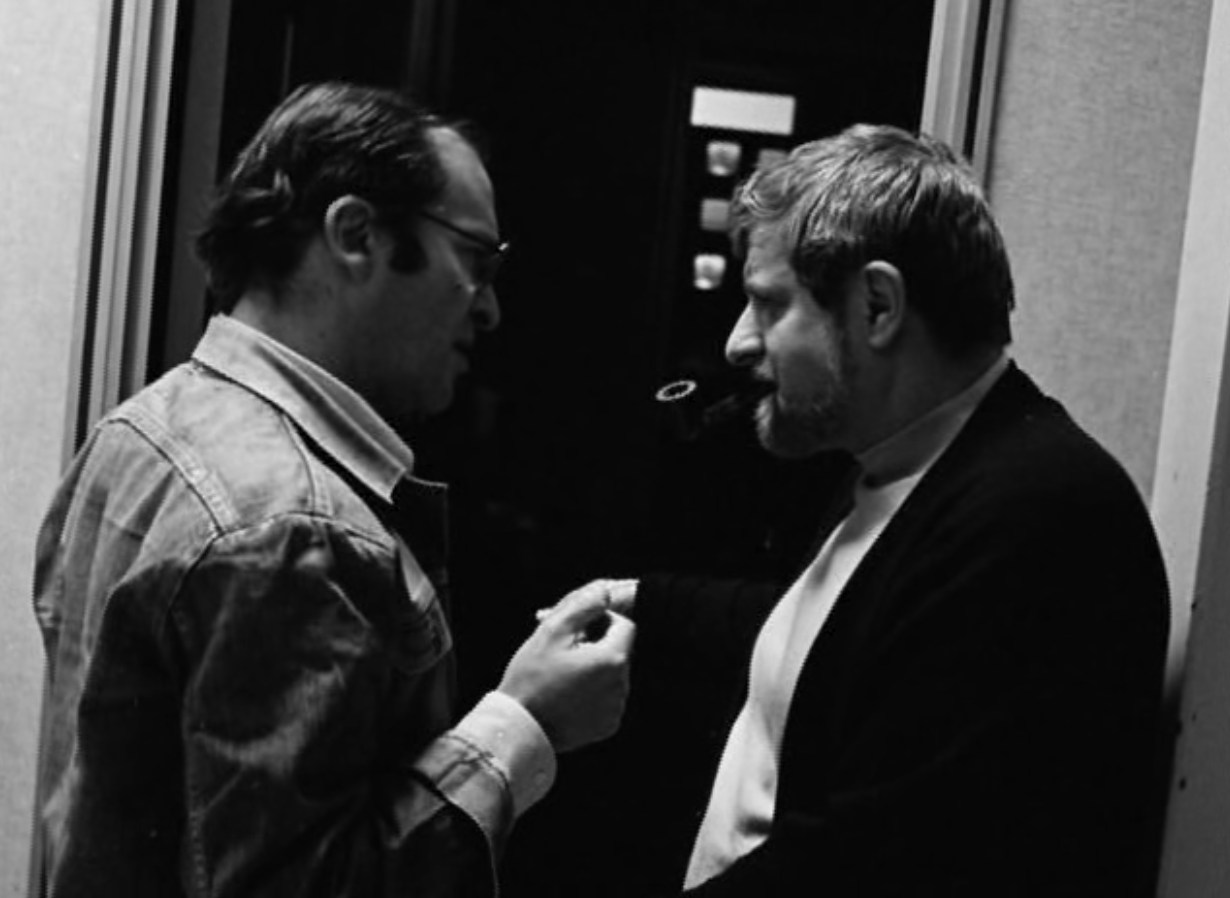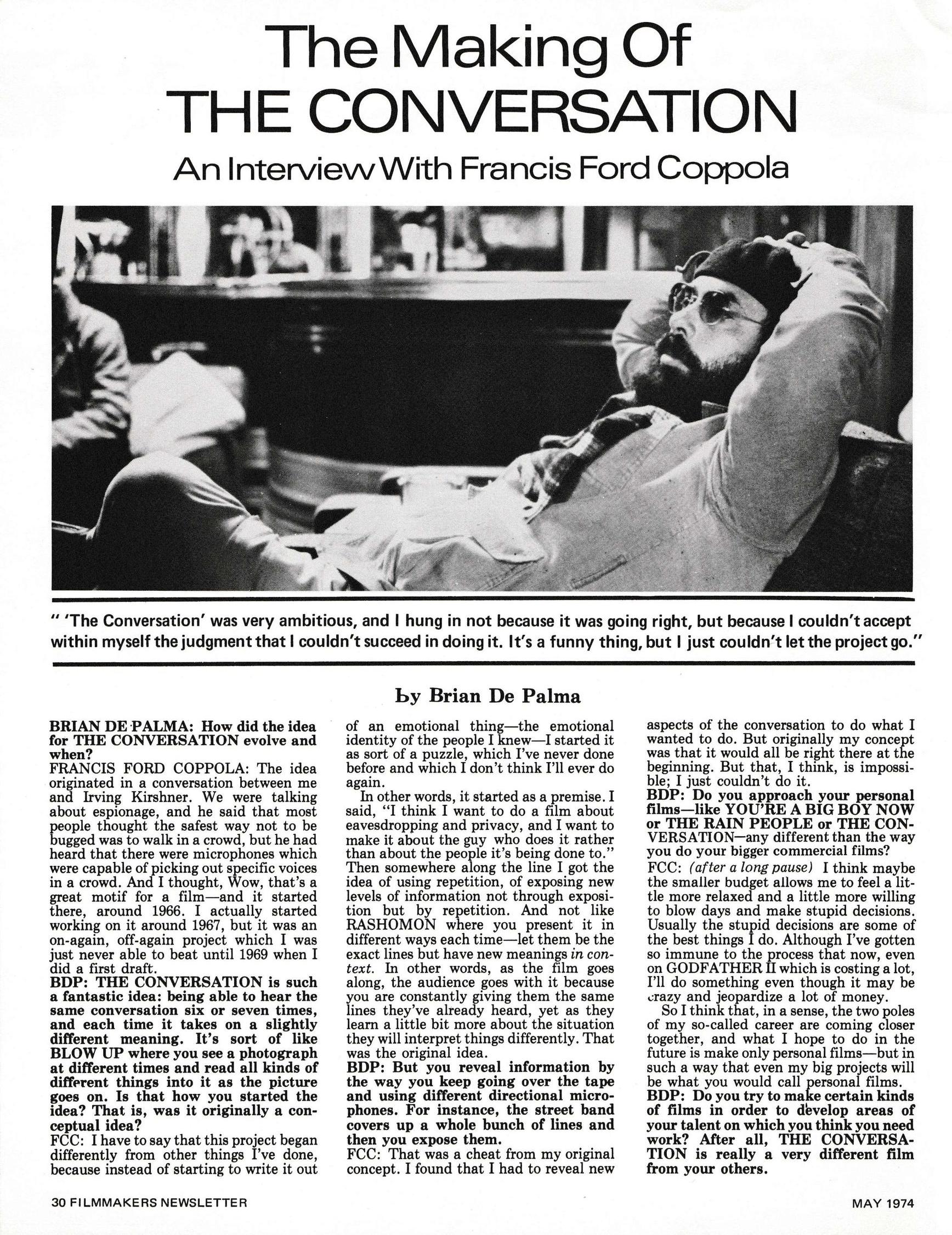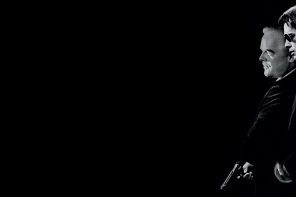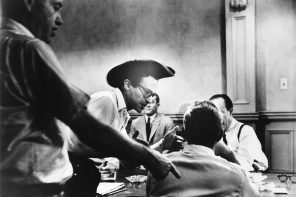By Sven Mikulec
It was 12 Angry Men that initially attracted us to the great American filmmaker and storyteller Sidney Lumet, but his 1975 mixture of drama, thriller and comedy, entitled Dog Day Afternoon, is most likely the one film in the director’s rich career that stayed with us the most. The problem with many, many films we’ve seen is that they are overeager to explain; storytellers put a lot of energy into explaining, offering the audience elaborate insights into the personalities and motivations of main characters, allowing the exposition to chew up a great deal of both the film’s running time and the audience’s patience. Dog Day Afternoon, on the other hand, thanks to a beautifully constructed, splendidly written script by Frank Pierson and Sidney Lumet’s signature tendency to approach his themes and protagonists in a charmingly naturalistic way, simply throws you in front of the screen as if you’ve arrived late at the theater. The story of a desperate man who decides to rob a bank in order to pay for his gay lover’s much desired sex change is not only unusual and courageous, considering the moment of its release. It’s somehow fresh, it’s full of life, possessing a quality of authenticity and credibility. A great responsibility was put on the shoulders of Al Pacino and his partner in crime John Cazale, a brilliant, never forgotten actor who left us too soon, and they pull it off seemingly with nothing but ease.
In the screenplay, Cazale’s role was written to be a smart-ass street kid. But Al came to me and said, ‘Sidney, please, I beg you, read John Cazale for it.’ And when John came in I was so discouraged and thought ‘Al must be out of his mind.’ This guy looks thirty, thirty-two, and that’s the last thing I want in this part. But Al had great taste in actors, and I hadn’t yet seen him in The Godfather. And Cazale came in, and then he read, and my heart broke… One of the things that I love about the casting of John Cazale was that he had a tremendous sadness about him. I don’t know where it came from; I don’t believe in invading the privacy of the actors that I work with, or getting into their heads. But my God—it’s there—in every shot of him. And not just in this movie, but in Godfather II also. When Al asked him during a scene, ‘Is there any country you want to go to?’ Cazale improvised his answer by saying, after long thought, ‘Wyoming.’ To me that was the funniest, saddest line in the movie, and my favorite, because in the script he wasn’t supposed to say anything. I almost ruined the take because I started to laugh so hard… but it was a brilliant, brilliant, ad lib. —Sidney Lumet
Pacino is a great actor, it’s a fact only the stubborn and the blind refuse to acknowledge, and the strength and commitment with which he brings his character to life here proves his place among the greatest. It was Pierson’s screenplay that made him fall in love with the project and agree to participate, and it’s easy to understand why. Without proper introduction the characters are simply thrown at the viewers: their history, their passions and desires, the troubles that forced them into the corner they most likely won’t be able to come out of unscathed. Lumet, moreover, insists on situational humor to breathe in more life to the story. In fact, at times it’s rather difficult to say what kind of a film we’re watching. The situation is nothing but dire, the outcome insecure at best, and yet there’s an air of comedy in this mixture, as we witness the ordinary boys-next-door trying to cope with a crisis even though it’s painfully obvious they’re in over their heads. There’s also a decent amount of sociological commentary in this film, most evident in the scenes where the hastily gathered crowd first cheers for the protagonist, seeing him as a hero who stood up to the despised police forces, and then turns its back on him as soon as they find out he’s homosexual. The absence of cliches, the complete unpredictability of the plot and, most importantly, the gorgeously nuanced characters that you grow fond of—all of it makes Dog Day Afternoon an irresistible albeit bitter slice of life. Feel free to examine, study and absorb this rare screenplay with Pierson’s handwritten notes.
Screenwriter must-read: Frank Pierson’s screenplay for Dog Day Afternoon [PDF1, PDF2]. (NOTE: For educational and research purposes only). The DVD/Blu-ray of the film is available at Amazon and other online retailers. Absolutely our highest recommendation.
 Loading...
Loading...
Here’s an excellent video session with writer-director Frank Pierson, courtesy of Go into the story. His credits include Cat Ballou (1965), Cool Hand Luke (1967), Dog Day Afternoon (1975), A Star Is Born (1976), King of the Gypsies (1978), In Country (1989), and Presumed Innocent (1990).
Frank Pierson discusses working as a director of movies for television and writer of acclaimed feature films as well as the feature films he has directed, the Golden Age of Television and he offers insight into the sometimes complicated working relationship between writers and directors.
In one of his best interviews, Sidney Lumet discusses his directing style developed over 50 years of filmmaking including such noteworthy films as 12 Angry Men, Long Day’s Journey Into Night, Dog Day Afternoon and Network. Due to the length of the interviews, they have been divided into chronological chapters for easier viewing. To view a chapter and see its full transcript, click on the thumbnails.
Sidney Lumet was interviewed for three-hours in New York, NY. Mr. Lumet spoke of his work as an actor on the stage before he became a director in television. He recalled his work on the television series Danger (1950-55), and You Are There (1953-57) both “live” dramatic shows of the time. He discussed the use of blacklisted writers on these shows and how the material they wrote often reflected the era of McCarthyism. He also discussed other television dramatic anthology series he directed for including Omnibus, Goodyear Playhouse, The Alcoa Hour, Studio One, and Kraft Television Theatre. He described his direction of the well-known television special The Sacco-Vanzetti Story and The Play of the Week: The Iceman Cometh both of which aired in 1960. He spoke of his transition to a feature film director with 12 Angry Men in 1957 and his work on such other feature films as the Paddy Chayefsky’s satire, Network (1976). The interview was conducted by Dr. Ralph Engleman on October 28, 1999.
Dog Day Afternoon audio commentary featuring director Sidney Lumet.
Michael Horton from the LACPUG has found the tapes from a 2006 interview with the film editor Dede Allen. Two hours of industry insight behind the editing of some big Hollywood films. The tapes got lost or misplaced and only resurfaced recently. The almost two hour interview has just been published. Unfortunately Dede passed away in 2010, but this interview is a great record of her experiences and knowledge from editing some of the great Hollywood films of the late twentieth century. Classics such as The Hustler, Bonnie & Clyde, Dog Day Afternoon and others make up a pretty impressive list of credits on IMDb. She was also nominated for an Academy Award three times for Best Editing. The four videos add up to just under two hours and slightly ironically, as Dede started off as a sound editor, the audio quality isn’t great. Nevertheless, a great and entertaining watch and some chat about Final Cut Pro too.
If you made a list of the ten best editors ever, Ann Coates and Dede Allen would be in there. They’ve been an inspiration to a whole generation. Dede got her start in New York. I never ran into her there, because I had moved out here to the West Coast, but Richie Marks, Barry Malkin, Steve Butler, and many other New York editors my age grew up under her guidance. —Walter Murch
Dede Allen on editing: an interview. What a treasure of an interview!
An interview with Sidney Lumet by Peter Bogdanovich, Film Quarterly, Winter 1960. A gem of an interview with THE legend.
“John’s life was such a mystery,” said the documentary’s director-producer Richard Shepard. “He liked to drink. He liked to smoke. He liked beautiful women and he liked to act. His personal story was what it was. Once Meryl Streep said she’d learned about acting from John and Pacino said the same thing, I realized that, ultimately, this movie would be about acting in the guise of—John.” Streep had never spoken so publicly about Cazale. And if her emotional interview in the film is any indication, it wasn’t especially easy. Streep was at Cazale’s bedside as he lay dying. During the film, her eyes are sometimes red and slightly swollen as if she’d broken down, recovered and soldiered on. But here she is, the most Oscar-nominated actress in history, humbly crediting Cazale for inspiring her career. “We would talk about the [acting] process endlessly and he was monomaniacal about the work,” she says in the film. “I think I was more glib and ready to pick the first idea that came to me. He would say, ‘There are a lot of other possibilities.’ That was a real lesson. I took that to heart. I always think about it.” —John Cazale, A Godfather of Acting
Here’s to one of the greatest actor’s of a generation. Still missed and a gift to all who’ve seen him, here’s to the great, John Cazale.
Al Pacino talks about his acting partner, John Cazale: “I learned more about acting from John than anybody.”
Remembering Sidney Lumet: his advice to aspiring directors.
The making of Sidney Lumet’s Dog Day Afternoon. Photographed by Muky © Warner Bros., Artists Entertainment Complex. Intended for editorial use only. All material for educational and noncommercial purposes only.
We’re running out of money and patience with being underfunded. If you find Cinephilia & Beyond useful and inspiring, please consider making a small donation. Your generosity preserves film knowledge for future generations. To donate, please visit our donation page, or click on the icon below:
Get Cinephilia & Beyond in your inbox by signing in
[newsletter]
